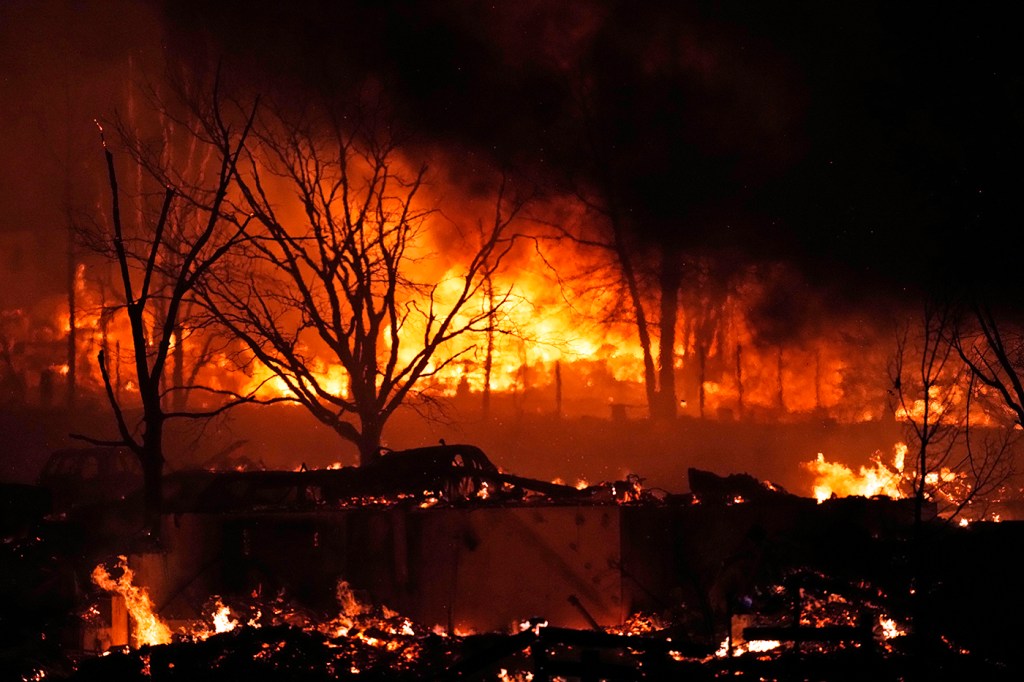This Northeastern-born startup helps cities deal with changing climate

The price tag on Colorado’s most destructive wildfire ever will likely be huge. The rare December blaze (most wildfires don’t happen during the winter when snow is on the ground) destroyed nearly 1,000 houses and damaged hundreds more. Stunned homeowners have begun contacting their insurance companies for help piecing their lives back together.
Predicting where and when the next extreme weather event will hit, and what the financial toll will be, is pretty much a guessing game for insurance companies and other firms that deal with risk. While they are in the business of hedging bets against the unexpected, how do they model for something as unpredictable as Mother Nature?
This is the business of the growing catastrophe modeling market that serves the insurance sector.
“Counterintuitively, the insurance ecosystem is not helping society absorb the majority of the economic impacts of climate change, which is putting most of the burden on communities and low-income populations,” says Evan Kodra, a 2014 Northeastern doctoral graduate.
That is what prompted him, along with engineering professor Auroop Ganguly and another alum, Colin Sullivan, to found risQ (pronounced “risk”), a climate modeling and analytics company, in 2016.
The three helmed the company—Kodra as chief executive officer; Ganguly as chief scientific adviser; and Sullivan as chief operating officer—until Intercontinental Exchange acquired the startup last month. Sullivan also served as a consultant with Northeastern’s Center for Research Innovation, working with faculty to figure out how to commercialize on-campus inventions.
The Boston-based risQ was spun out of Ganguly’s Sustainability and Data Sciences Lab, and over its lifetime received $1.65 million in National Science Foundation Small Business Innovation Research grant funding.
A landmark NSF Expeditions in Computing grant had also been critical in years past, funding much of the SDS Lab’s research that led to the founding team’s idea underpinning risQ.
risQ never took any outside investor capital. “I don’t think we could have achieved this level of mission-oriented success without the crucial support of the NSF and Northeastern,” Sullivan said.
“We are delighted to witness the success of risQ and look forward to its growing positive impact for cities and organizations around the globe,” says David Luzzi, senior vice provost for Research. “risQ’s quantitative approach is a perfect example of our desired outcomes from Northeastern’s research enterprise to create and translate knowledge for the benefit of society.”
The company initially targeted the insurance market, but pivoted to cities and communities, where the burden of climate change is driving an early wave of small-town bankruptcies, social inequality, and alarm bells in the financial markets.
“The power of entrepreneurship can and must be brought to bear on the problem of climate change, which has been called the greatest challenge of our generation by the U.N. secretary-general, among others,” says Ganguly.
risQ’s growth came fast. The company went from one customer in the early days to more than 20 customers today—mostly financial institutions that invest in real estate-backed securities and the municipal debt issued by U.S. cities to fund water and sewer systems, schools, transit projects, and day-to-day critical services.
“Most people aren’t really aware of the municipal debt market and how it dictates so much of our built environment and socioeconomic structure. Bonds are like the credit cards of cities,” Kodra says. “We think this market will soon evolve into the primary vehicle for financing climate action in the U.S. because it’s in the best interest of not only cities but also their investors.”
Virginia Beach, a city exposed to increasing flood risk with a shoreline nearly 40 miles long, is one of the first major examples. In 2021, its residents voted to borrow more than $500 million in municipal bonds to invest in climate resilience.
risQ began a similar project recently with another city looking to improve stormwater runoff management as sea levels rise and flooding intensifies. “Our role is to do the economic and social cost-benefit analyses related to proposed climate infrastructure investments,” says Kodra.
risQ’s models proved to be such a differentiator that it was recently acquired by Intercontinental Exchange (ICE), one of the largest operators of electronic marketplaces.
“To the best of my knowledge, this is the first successful ‘exit’ of a startup company focused on climate and cities,” Ganguly adds.
The deal instantly gives risQ growth opportunities.
Intercontinental Exchange and risQ first began working together in January 2020 with the launch of ICE Climate Risk, which lets investors in the U.S. municipal bond and real estate markets incorporate climate risk into project and investment decisions.
Next followed risQ’s Social Impact Scores, allowing users to quantify and invest in social causes through the municipal bond and real estate markets.
“risQ is a great example of putting the power of data science and predictive analytics to work on big problems facing society and our planet,” says Usama Fayyad, executive director of Northeastern’s Institute of Experiential Artificial Intelligence.
“It is a model of how we hope Northeastern will turn research in experiential AI not just into pragmatic solutions but actual economic engines that leverage the entrepreneurial spirit of our university and faculty,” he adds.
With the sale of risQ a done deal, Ganguly and his lab mates are already pondering the next societal issue to tackle.
“Critical infrastructure resilience? Urban sustainability? Yes, we bring the power of America’s and the world’s entrepreneurial spirit to solve grand societal challenges of the day,” he says.
For media inquiries, please contact media@northeastern.edu.





